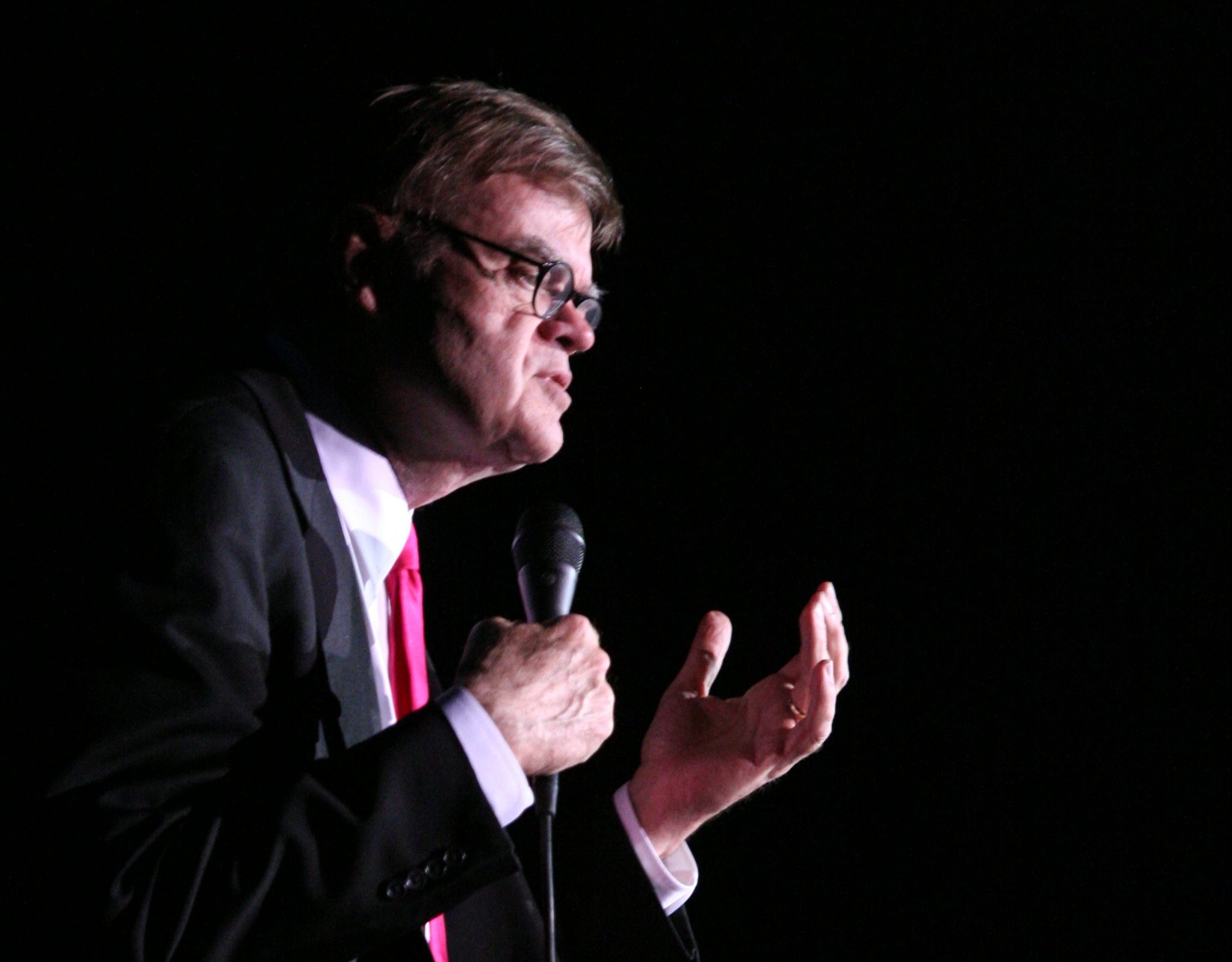Garrison Keillor’s 40-year run as host of A Prairie Home Companion came to an end last year, but the consummate storyteller continues to perform.
At 8 pm Friday, Oct. 20, Keillor will host his new one-man show at the Hult Center, regaling audiences with tales and insights from his career in radio, comedy and American middlebrow culture. Eugene Weekly sat down with Keillor — electronically speaking — to gain some some perspective on a career spent trying to make America laugh.
What advice would you offer to aspiring creatives on how they might endure through the trials and tribulations of an artistic path?
The tribulations of artists are mostly self-inflicted, and you need to inflict them and then move on and connect with an audience and make yourself useful. In my early 20s I wrote poetry and worked at ambiguity, hoping to impress my peers, and then I jumped into radio where ambiguity is not viable, and that was a lucky move.
It changed everything. I was on the radio early in the morning, which is entirely different from doing a late-night poetry reading. It’s a healthy and exciting thing to have an audience and to figure out how to engage them.
You just published a piece in the Washington Post that excoriates Swedish judges for their choice of Kazuo Ishiguro for the Nobel Prize in Literature. Why is humor is so important in literature, and why do certain literary types look down on it?
The column in the Post was satiric. The Nobel Prize is a sacred cow and its tail needs to be pulled. And I think Ishiguro is a bleak nihilistic writer of a sort the Swedish Academy has honored enough of. I prefer the wild humanistic comedy of Philip Roth. He is ten times the writer Ishiguro is. Twenty times.
A Prairie Home Companion featured music prominently. Why do you believe music has such power to bring people together?
I am sentimental about public education, which gave its pupils a basic grounding in American music, mythology, history, so that we all participated in a common culture, had common references. I disapprove of public education that leans toward self-expression at the expense of that commonality. I think that when an audience stands and sings “America,” “Shenandoah,” “Swing Low, Sweet Chariot,” “The Battle Hymn of the Republic,” that we feel bonded to each other, even more so if the audience sings well. There is an emotional footing that people feel.
Who are some of your favorite poets?
I like young unknown poets who dare to speak clearly. It’s the most thrilling aspect of doing the Almanac, coming upon someone I’ve never heard of who tells me something I need to hear.
